Vatican Science Panel Calls Attention to the Threat of Glacial Melt

A panel of some of the world’s leading climate and glacier scientists co-chaired by a Scripps Institution of Oceanography, UC San Diego researcher issued a report commissioned by the Vatican’s Pontifical Academy of Sciences citing the moral imperative before society to properly address climate change.
The Coming Storm
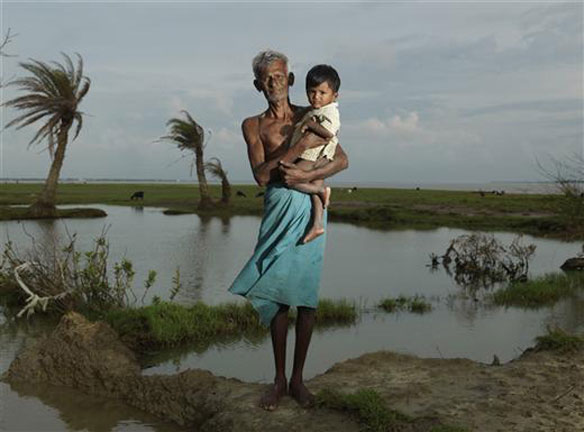
The people of Bangladesh have much to teach us about how a crowded planet can best adapt to rising sea levels. For them, that future is now.
Seas could rise up to 1.6 meters by 2100: New Report
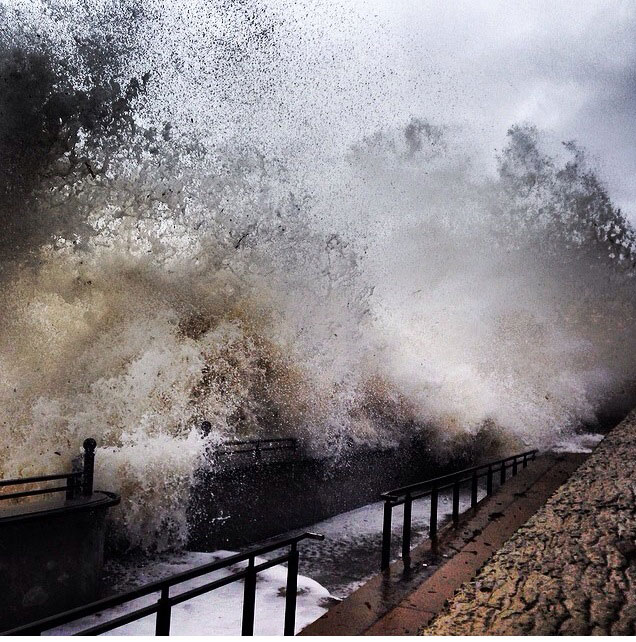
Quickening climate change in the Arctic including a thaw of Greenland’s ice could raise world sea levels by up to 1.6 meters by 2100, an international report showed on Tuesday. The study is yet another reminder of how pressing it has become to tackle climate change.
A Spanish Island’s Quest to Be the Greenest Place on Earth
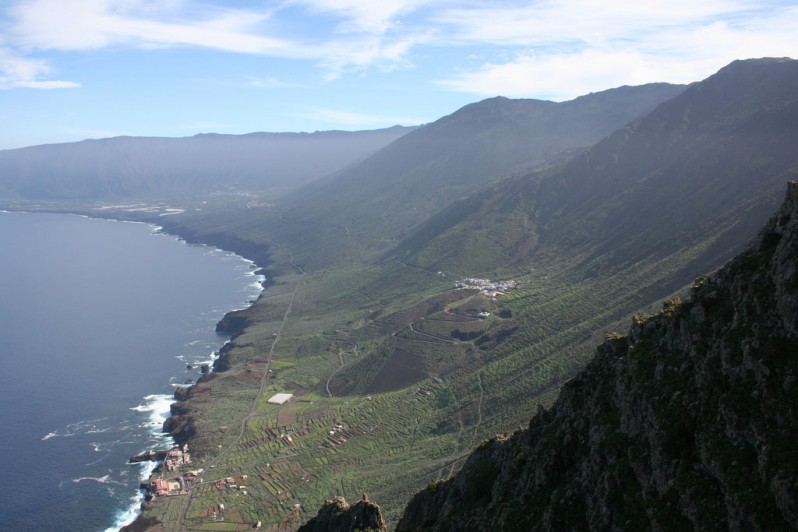
When an innovative wind-power system goes online at the end of 2011, El Hierro, the easternmost of Spain’s Canary Islands, will turn into the first inhabited landmass in the world to become completely energy self-sufficient, using nature’s gifts: wind and sea water. And that’s just the first step in a plan that may make the island the most sustainable place on Earth.
Nauru use UN spotlight to confront developed world over climate change
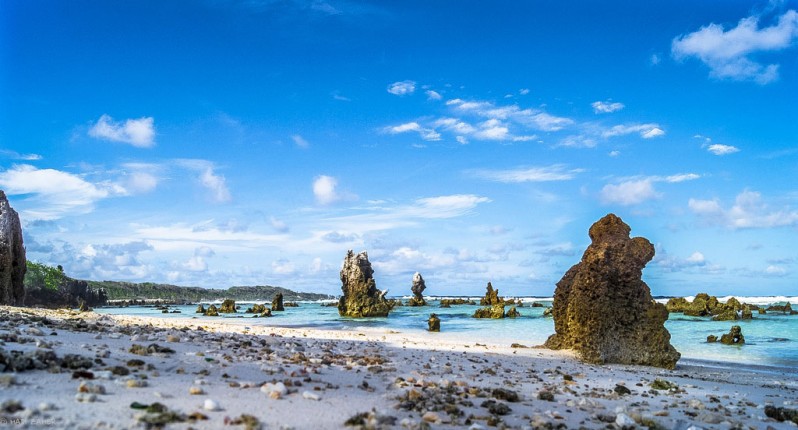
The smallest nation in the UN is about to take the AOSIS chair at a time when low-lying coastal countries are gravely threatened. Nauru is among the islands most threatened by rising sea levels and its economy has been almost wholly dependent on phosphate, which has led to environmental catastrophe on the island, with 80% of the nation’s surface having been strip-mined.
Endangered places around the world
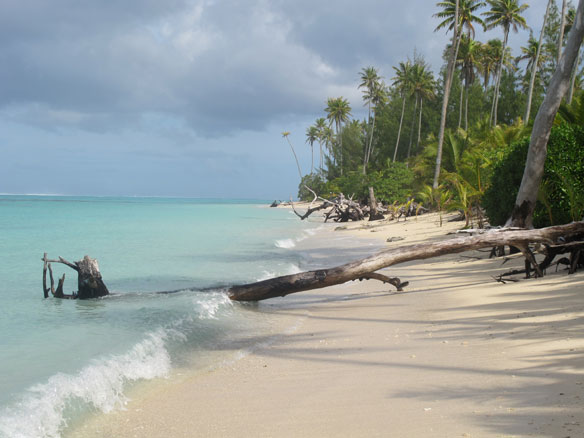
In celebration of Earth Day, Gaute Hogh, publisher of the book 100 Places to Go Before They Disappear, was interviewed. The book features 100 photographs from one hundred different places around the world in risk of disappearing or seriously threatened by climate change.
Arctic’s Icy Coastlines Retreat as Planet Warms
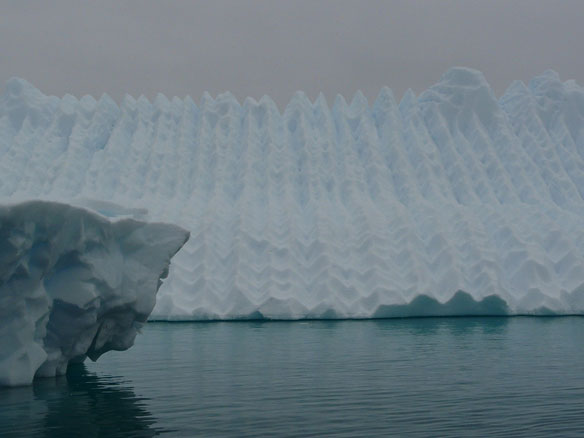
The coastline in Arctic regions reacts to climate change with increased erosion and retreats by half a metre per year on average. Less sea ice means more open water, which means stronger waves generated by wind. These, in combination with warming temperatures and more storms, mean more erosion of coastlines. Rising sea levels are also expected to enhance erosion.
Ozone Layer Faces Record 40 Percent Loss Over Arctic
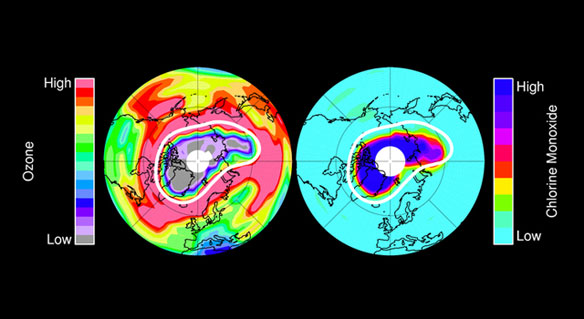
Observations from satellites and ground stations suggest that atmospheric ozone levels for March in the Arctic were approaching the lowest levels in the modern instrumental era. The thinning ozone shifts away from the pole and covers Greenland and Scandinavia. Mostly the concern, for the Arctic ozone depletion, is for people that live in northern regions, more towards Iceland, northern Norway, the northern coast of Russia.
River Water and Salty Ocean Water Used to Generate Electricity?
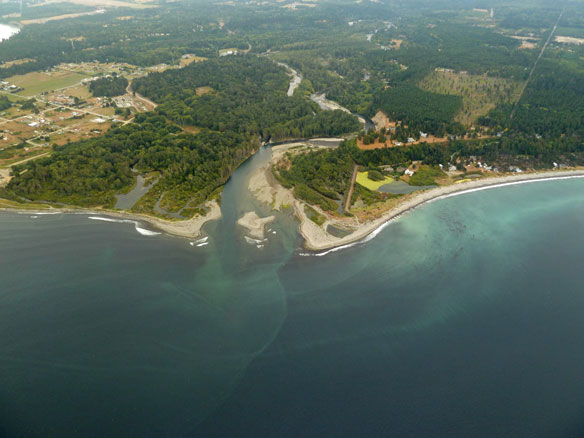
Stanford researchers have developed a battery that takes advantage of the difference in salinity between freshwater and seawater to produce electricity.
